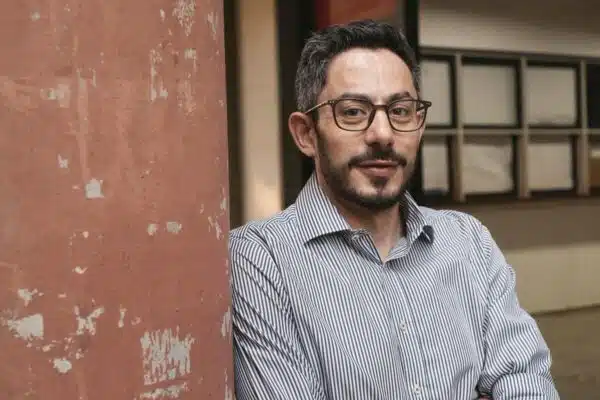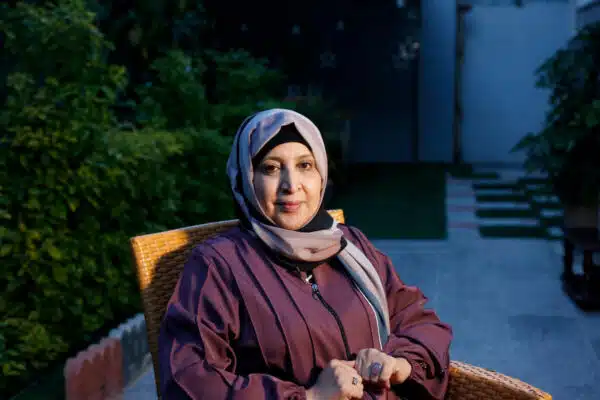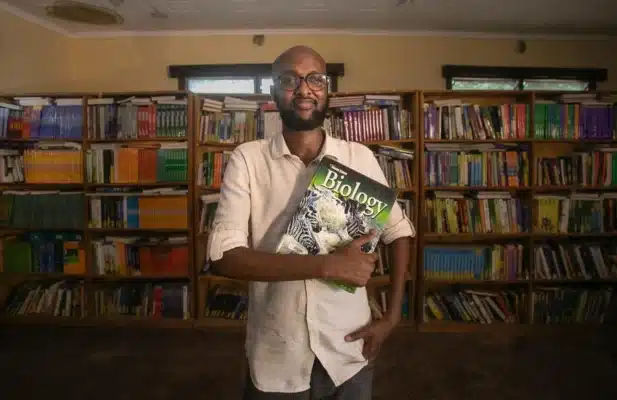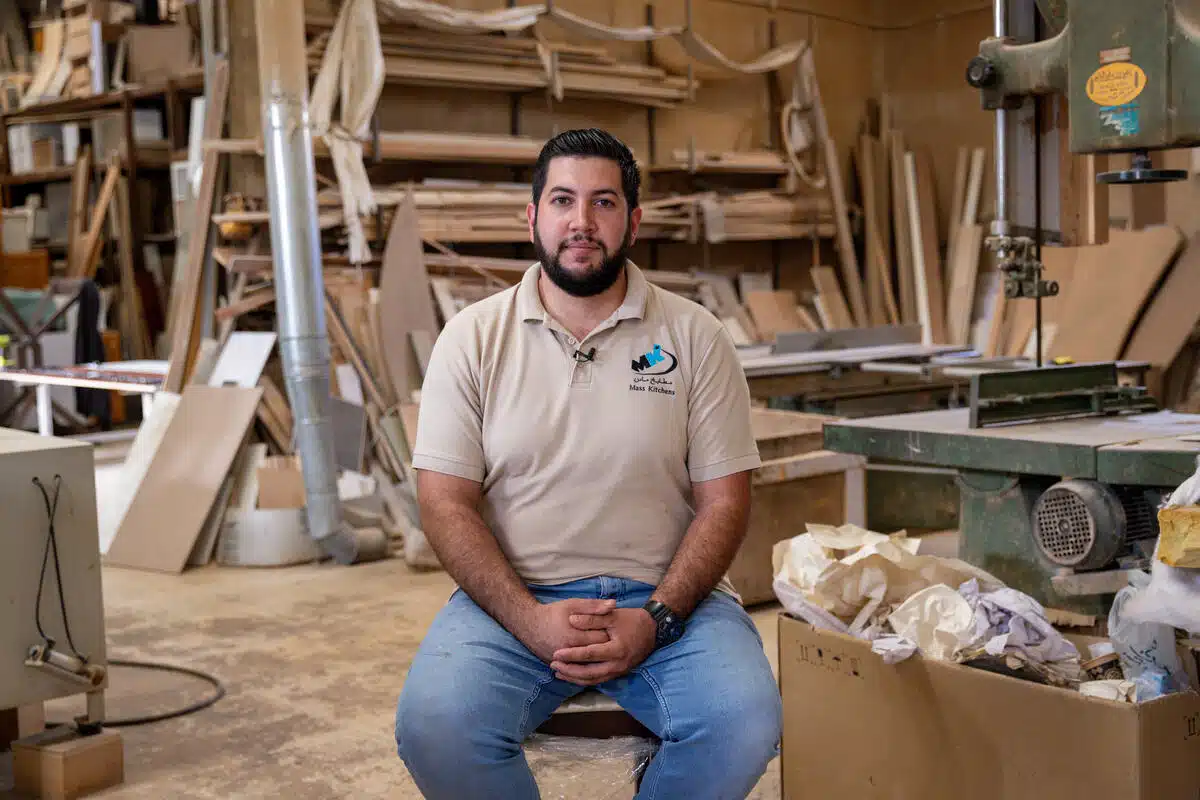
Ziad Al-Shayeb has struggled to practise his profession of carpentry since fleeing Syria 12 years ago. With advice and support from Talent Beyond Boundaries, he now has a work contract with a construction company in Canada. © UNHCR/Nisrine Benyahia
Talent Beyond Boundaries has matched 1,200 refugees to work opportunities overseas and plans to pair at least 15,000 more to jobs over the next five years
By Roger Burks in Amman, Jordan
Carpentry is a tradition in Ziad Al-Shayeb’s family. It’s the source of his fondest memories and biggest aspirations.
“Syrian children accompany their parents to work; sometimes they master their profession since childhood. When I was young at school or during summer vacation, I would go with my father and practise the profession with him,” Ziad explained. “He was always recommending that my work should reflect an excellent image of myself to people.”
When he was forced to flee violence in Syria as a young man, he lost the chance to practise carpentry as a full-time profession. For the 12 years that 31-year-old Ziad has lived in neighbouring Jordan, he has supported his family through day labour and seasonal work and has had little opportunity to continue with the craft he holds so dear.
Jordan, which hosts some 650,000 Syrian refugees, has shown enormous generosity since the Syria crisis began in 2011. The country has supported refugees in and out of camps, committing to a range of socio-economic programmes that have helped support education, employment and other critical needs. Since 2016, the Jordanian government has worked with international organizations to improve livelihood opportunities for refugees and host communities alike: the so-called Jordan Compact has facilitated, among other things, more than 350,000 work permits for Syrian refugees.
A precarious living
However, there are still gaps and challenges that affect refugees like Ziad. Jobs available to refugees are often unskilled and temporary, and typically only in professions and sectors where refugees are not competing with Jordanians for employment.
As a result, Ziad has made a tenuous living through short stints on construction projects and in small factories. Some days, you can find him in a cabinet and furniture fabrication shop on the outskirts of Jordan’s capital, Amman – but his work permit does not allow him to do carpentry there.
“I can work in this company in certain areas, such as carrying or removing things, or for example, vacuuming or cleaning, or doing very simple things,” Ziad said. “The sector is very saturated, and opportunities are limited.”
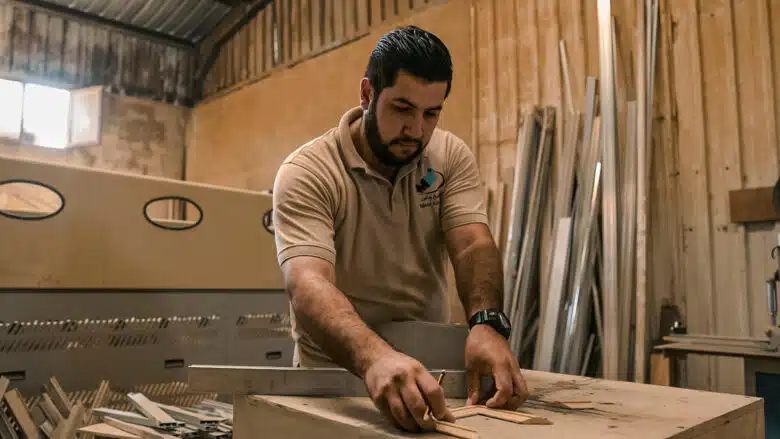
Syrian refugee Ziad Al-Shayeb is a skilled carpenter but has been unable to find regular work in Jordan. © UNHCR/Nisrine Benyahia
The sporadic nature of the work is challenging for Ziad, who often struggles to provide for his family – including his parents, wife and two children. But recently, a new connection has made him hopeful about the future.
At the 2019 Global Refugee Forum, a non-profit organization called Talent Beyond BoundariesLink is external (TBB) pledged to help match companies around the world to refugee talent, leading to livable wages and sustainable opportunities for career advancement. Since then, the organization – which was founded in 2015 and has established programmes in seven countries, including Jordan – has registered more than 78,600 displaced job seekers in its worldwide “talent catalog.”
A new start
One of them is Ziad. And it didn’t take long for TBB to match him to a carpentry and construction opportunity in eastern Canada. Over the course of a few weeks, Ziad worked with TBB staff at their office in Amman, including Zeina Hyari, a Global Relocation Manager.
“We directly work with the candidates one-on-one to build their CVs, so it meets international standards of recruitment,” Zeina said. “This is an opportunity for refugees to work in their fields legally, without any restrictions or limitations.”
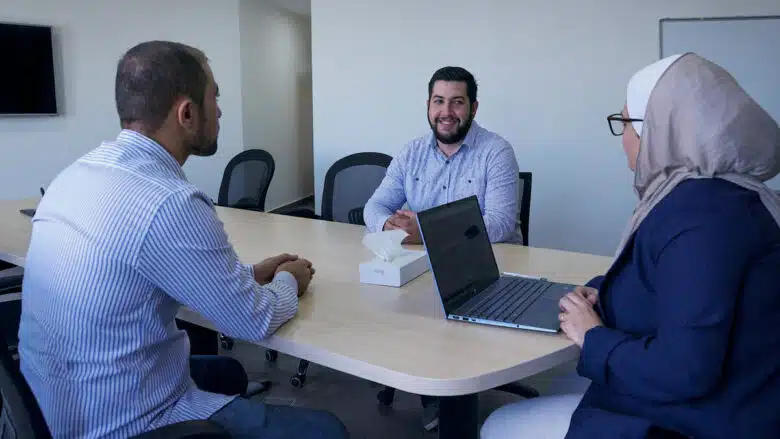
Zeina Hyari, a Global Relocation Manager with Talent Beyond Boundaries, meets with Ziad and another Syrian refugee. © UNHCR
“Honestly, [the] TBB staff were very helpful and motivated me,” Ziad added. “[They helped me] to submit an application, prepared me for an interview […] I was selected, and they sent the offer, then I signed the contract with them. Even after being offered a job, they called and congratulated me.”
TBB is currently working with Ziad, and several other refugees with skills in carpentry and construction, to finalize work visas and other details before they can travel to Canada.
More employers needed
Since its pledge in 2019, TBB has helped match more than 1,200 refugees to sustainable work opportunities overseas, and it plans to pair at least 15,000 more refugees to jobs over the next five years. TBB will make a new pledge to expand its commitment – and appeal to potential employers around the world – at the second Global Refugee Forum in Geneva, Switzerland from 13-15 December.
“We do have a great pool of highly skilled refugees, but we need employers on the other side.”
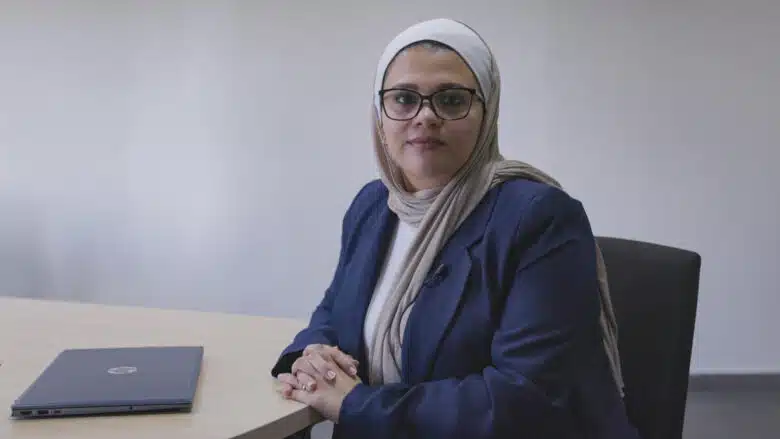
Zeina Hyari is a Global Relocation Manager with Talent Beyond Boundaries in Amman. © UNHCR/Nisrine Benyahia
“We do have a great pool of highly skilled refugees, but we need employers on the other side to commit to hiring those refugees,” Zeina explained. “Ninety per cent of the candidates who have relocated have reported that their life quality has improved. Seventy per cent said that they send back remittances to their friends and family who are facing financial struggles This is a win-win result for the employers, for the refugees and their families, and for the under-resourced host countries.”
As he prepares for his life-changing new opportunity, Ziad has a message for potential employers:
“Refugees […] have always relied on themselves. When a person has a lack of resources, he will have great dreams and seek in every possible way to achieve them.”
Originally published by UNHCR on 8 December 2023.



